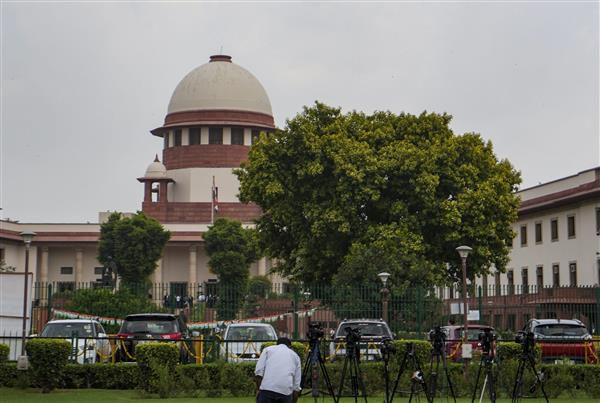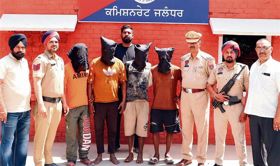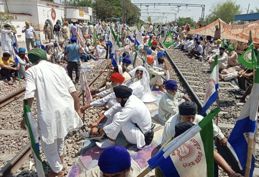
Photo for representational purpose only. PTI file
Satya Prakash
New Delhi, May 9
Terming municipalities as a grass-roots level democratic institution, the Supreme Court has ruled that elected members of municipal bodies can’t be removed at the 'whims and fancies' of civil servants or their political masters.
"The Municipality is an institution of grass-roots level democracy. The elected members cannot be removed at the whims and fancies of the civil servants or their political masters only because some of such elected members are found to be inconvenient within the system,” a Bench of Justice Surya Kant and Justice PS Narasimha said.
The Bench quashed disqualification orders issued in 2015 and 2016 by Maharashtra Urban Development Minister removing Naldurga Municipal Council President Nitin and Osmanabad Municipal Council Vice President Makarand @ Nandu.
“It requires no special emphasis that the elected representatives of public offices like a Municipality deserve due respect and autonomy in their day-to-day functioning, of course, subject to such limitations and restrictions as may be prescribed in law,” the Bench said last month.
“When question of determining misconduct committed by an elected member arises, ordinarily such misconduct would relate to his functioning after he has been elected to the office. However, in a given case, the misconduct committed before the election can also be taken cognizance provided that such misconduct is directly attributable to the elected representative and it went unnoticed and could not be scrutinized at the time when he filed his nomination papers,” it noted.
Nandu was removed following allegations of violation of provisions of the Maharashtra Municipal Councils, Nagar Panchayats and Industrial Townships Act, 1965, and misuse of powers by him on account of illegal construction of the house in excess of the permission granted. An enquiry held by the Collector concluded that the allegations were correct. A show-cause notice was issued to him and while the show-cause proceedings were pending, the Minister-In-Charge took suo motu action disqualifying him from the post of Vice-President of the Municipal Council, Osmanabad on December 2, 2015.
Similarly, Nitin was removed as Naldurga Municipal Council President on May 10, 2016, following allegations of irregularity in allotting garbage collection and disposal work to Sevalal Institution.
In both the cases, the appellants were debarred them from contesting elections in the municipal council for six years and the Bombay High Court had refused to interfere with the Maharashtra Government’s orders. However, the Supreme Court had stayed the high court’s orders in both the cases.
Setting aside the state government’s order against Nandu, the top court said that the house alleged to have been illegally constructed, was actually built by his father and there was no specific finding that he was in any manner associated as a co-owner or had otherwise made any contribution in the construction of the house.
In Nitin’s case, the top court said, “The tender was accepted only on the basis of a resolution passed in the General Body Meeting. It is, therefore, difficult to hold that it was an act solely to be attributed to the appellant. It seems to us that the action taken against the appellant (Nitin) for wholly insufficient reasons and as a ploy to remove him from the elected office.”
The Bench, however, clarified that “…if such an act leads to financial loss to the Municipality and if an elected representative, most importantly the President himself, fails to protect the interest of the Municipality, in that event, the misconduct of causing financial loss or misappropriation etc., would undoubtedly be an act of gross misconduct justifying severe penal action, including that of removal from public office.”
Join Whatsapp Channel of The Tribune for latest updates.




























